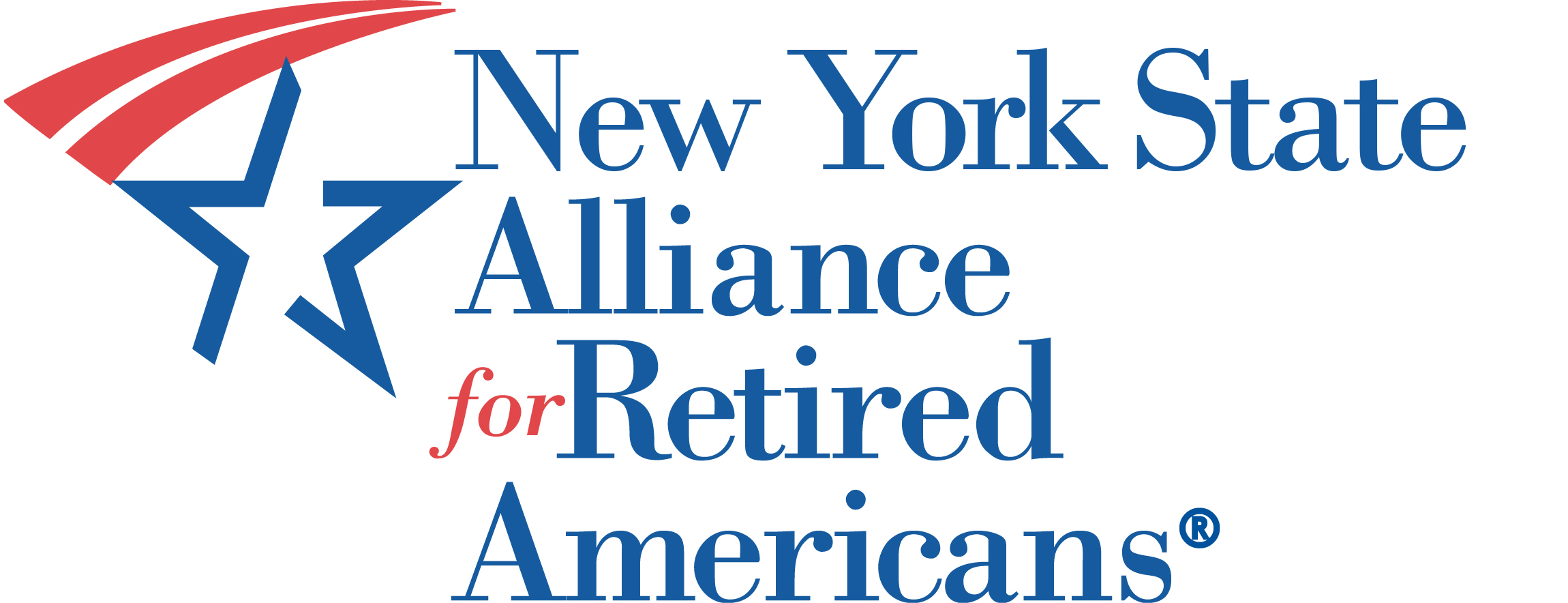NYSARA Actions
September 08, 2015
Support memo for NYS legislative bill # AO5565A KAVANAGH/S04748 that would allow localities to raise the income eligibility limits for the Senior Citizen Rent Increase Exemption (SCRIE) program and the Disabled Rent Increase Exemption (DRIE) program to any amount up to $51,000 beginning on July 1, 2016;
SUPPORT MEMO
AO5565A KAVANAGH/S04748
The New York State Alliance for Retired Americans, representing 440,000 members and their families strongly supports the above – referenced legislation.
This bill would allow localities to raise the income eligibility limits for the Senior Citizen Rent Increase Exemption (SCRIE) program and the Disabled Rent Increase Exemption (DRIE) program to any amount up to $51,000 beginning on July 1, 2016; to repeal the sunset provisions enacted in 2014 which, effective July 1, 2016, will terminate the authority of localities to raise the income eligibility limits for the SCRIE and DRIE program to any amount above $29,000, and to extend parity as to income-threshold eligibility to two parallel programs for elderly or disabled homeowners, the Senior Citizen Homeowners Exemption (SCHE) and the Disabled Homeowners’ Exemption DHE)
The SCRIE and DRIE programs provide a vital service by allowing eligible senior and disabled residents to remain in their homes and communities by keeping their rent affordable. SCRIE and DRIE freeze rents for low-income seniors and people with disabilities, respectively, living in rent-regulated housing who pay one-third or more of their income in rent. Landlords are compensated for the full amount of the foregone rent through refundable real property tax abatements. The maximum income-eligibility limit for these programs was raised in 2014 to $50,000. However, without this legislation, which eliminates a sunset provision that will automatically take effect in 2016, the maximum income limit will revert to the 2009 eligibility ceiling of $29,000. Similarly, the SCHE and DHE programs provide a property tax exemption of up to 50 percent of the assessed property value for senior residents who own one-, two-, or three-family homes, condominium, or cooperative apartments and who will be at least 65 years of age in the year that they apply.
The DHE program provides parallel relief where at least one owner has a documented physical or mental disability not due to the use of alcohol or illegal drugs. To qualify, all owners must occupy the property as their primary residence, with limited statutory exceptions, such as health-related inpatient status.
However, the SCHE and DHE programs were not included in the increased income limit discussed above. To be eligible for the 50 percent reduction, the combined income of all owners and their spouses cannot currently exceed $29,000. A “sliding scale” option permits localities to extend smaller assessed value reductions to owners with a combined income above $29,000 but less than $37,400. For example, an eligible senior or disabled homeowner with a combined income of $36,500 may receive a 5 percent reduction in the assessed value of their home for property tax purposes.
Increases in the cost of living and the continued stagnation of wages make it difficult for many seniors and persons with disabilities to make ends meet, regardless of whether they rent or own their homes. Both low- and middle-income residents are subject to the burden of escalating costs.
Senior citizens and those with disabilities often rely upon a fixed income, and homeowners typically have their primary wealth invested in their property. Moreover, elderly and disabled residents are often responsible for higher-than-average healthcare costs.
The cost of living in New York City in particular makes it difficult for persons with low incomes to make ends meet. By exempting low-income seniors and the disabled from rent increases or as much as 50 percent of their property tax assessment, this bill will help prevent some of New York’s most vulnerable residents from being forced to give up their homes.
The New York State Alliance for Retired Americans urges this bill be passed.
For further information contact the NYSARA office at 518-783-6231
